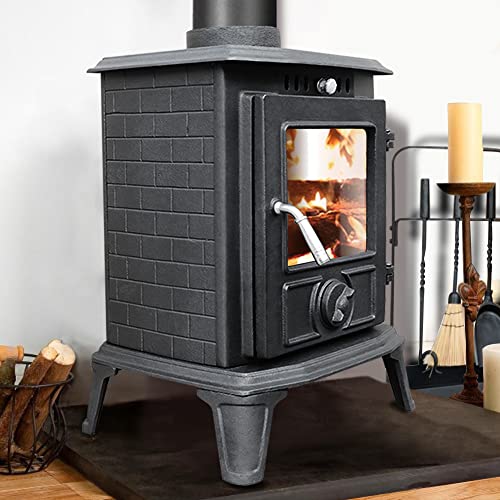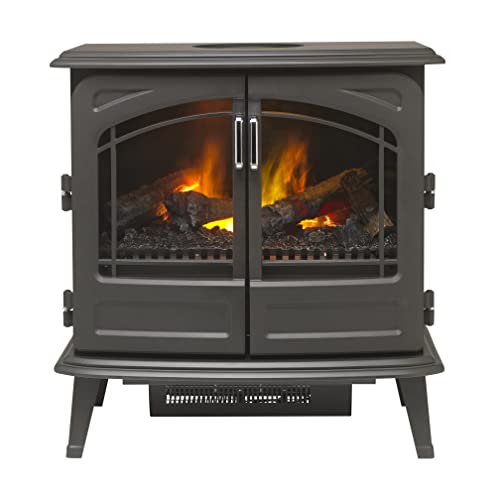10 Top Books On Electric Stove Fire
페이지 정보
작성자 Eddie 작성일23-12-15 04:24 조회5회 댓글0건관련링크
본문
 Causes of Electric Stove Fires
Causes of Electric Stove Fires Electric woodburning stoves (Highly recommended Reading) may be convenient however, they can also cause fires that could cause hundreds of thousands of dollars of damages and even death. A malfunctioning electrical system could cause a fire that starts on the stove or in an area nearby.
Electric woodburning stoves (Highly recommended Reading) may be convenient however, they can also cause fires that could cause hundreds of thousands of dollars of damages and even death. A malfunctioning electrical system could cause a fire that starts on the stove or in an area nearby.Follow the safety guidelines below to prevent these types fires.
Damaged Electrical Outlets
Electrical outlets that have been exposed to water, or burned, could short circuit. This causes the wires to heat and begin to burn. This poses a serious risk of fire and could cause your wood stove to catch fire. If you notice any signs of a damaged outlet turn off the power at the circuit breaker and contact an electrician immediately.
You should also look for red flags such as discoloration around the outlet melting plastic, or burning smells. If you hear a popping sound, it's a serious sign that your outlet is at risk and requires replacement.
Each electrical conductor is able to handle a maximum amount current. If you connect a large appliance to an outlet that cannot supply enough power, it could overheat. Over time, this can lead to an explosion that could damage the wiring and cause a fire in your electric stove or other appliances.
It's also a source of risk if you own an old home with outdated wiring. The outdated wiring may not be able to accommodate the electrical demands of your machines, which can overburden the circuit and trigger fire. If you have older wiring it is essential to schedule regular electrical inspections.
The overheating of a plug-in appliance is the most common reason for an electrical outlet to catch fire. The heat generated by an appliance could cause the cords or insulation to melt. This can lead to a very dangerous situation because the hot wires can ignite and cause a fire in your stove or other appliances in your home.
If you suspect that your stove is overheating, you should immediately switch off the stove's power and employ a fire extinguisher for any small flames to help contain them. If you are unable to get the fire out then evacuate the area and call 911 from a safe location. If you do use a fire extinguisher, remember to aim it at the center of the fire, and not at the flames themselves since this can cause them to spread.
Faulty Wiring
A faulty wiring system is the primary cause of electrical house fires. Wires that are old and deteriorated can overheat and melt, causing fires. This could cause serious injuries and property damage. Wires that are electrical should be checked and repaired by qualified electricians regularly to avoid issues like this. One of the signs of faulty wiring are outlets that cause shocks, lights flickering and the smell of wood burning stoves near me wires. Contact an electrician if you detect any of these signs.
Toasters, microwaves and ovens are a few of the most frequently used appliances that can cause an explosion in your home. These devices can cause an explosion in your home when connected to outlets that cannot handle their watts. This is particularly true for older appliances. It is a good idea to get a professional electrician to inspect your kitchen appliances on a regular basis and install outlets upgrades when needed.
Kitchen appliances can also trigger fires when they are plugged into extension cords or power strips that have not been upgraded to meet the wattage requirements of modern appliances. These appliances are not recommended to be plugged in for long periods of time or if you are away. Avoid using hot cooking tools near or on the stove. Also, ensure your children do not play with or wear clothes that could get caught up in kitchen appliances.
Electrical fires can be very dangerous. They can cause significant damage to your home, your belongings and even your family's lives. Make sure to inspect your home for electrical fire hazards on a daily basis. If you have questions about the electrical wiring in your house or woodburning stoves have any issues, don't hesitate contact an expert local Sydney electrician. They can assist you with any electrical repair or inspection needs. They can also help with electrical panel upgrades and maintenance of smoke detectors, and much more.
Extension Cords
An extension cord is insulated electrical wire fitted with a plug at one end and sockets on the other. They are available in a wide variety of lengths and colors from two feet to 100 feet. They are convenient to use in situations where electrical equipment is unable to reach the outlet, however they could cause fires if they are not used properly and the cords aren't maintained or stored after each use.
Extension cords can overheat and cause a fire. This is particularly true if they are used to power an electric stove heaters stove. Overheating can occur if the cords are plugged into an outlet that is not large enough to accommodate the cord's size or when they are used to power appliances that require more electrical current than the cords are designed for. The cords may also overheat if they are used in damp or wet conditions or in proximity to oil.
The cord's temperature can cause it to melt or carbonize. It can also damage the cord's wires, posing the risk of fire.
Some extension cords come with security features like a grounding conductor or a lighted plug connector boxes and multiple sockets. Others come with a three-prong plug which can only fit into outlets that are specifically designed to accommodate it. It is dangerous to remove the third prong or force the plug into an outlet that wasn't designed for it. This can remove the insulation from the cord and expose the wires, which could result in electric shock or a fire.
Before every use of the cord, it's important to check for any damage. This includes damaged or damaged wires, or cords that are tangled, knotted or have loose ends. The cords should be inspected to ensure they're the correct gauge for the job. Cords that are not heavy enough for the tool or appliance could overheat and create a fire hazard. If the cords have been damaged, they should be repaired or replaced.
Smoke Detectors
It can be tempting to remove smoke detectors when they go off frequently. But, this is risky as it leaves you open to fire. Use the "test" button on smoke detectors to determine what's causing them to. If you find that it's hairspray, steam or aerosols causing the alarms to go off Keep them away from your stove and use an exhaust fan in your kitchen when cooking.
Examine the batteries to determine whether they're dead. Replace the batteries, then test again. If you're still having issues, consult an electrician.
The International Residential Code requires that each home be equipped with smoke detectors. Some communities have additional rules that require extra detectors in rooms that have wood stoves-wood burning stove or gas-burning fireplaces laundry rooms, for example. Call your local building authority to learn what rules are applicable to your community.
Smoke detectors can be either photoelectric or ionization-type. Photoelectric detectors employ an optical sensor that projects light into a chamber that is sensing and detects smoke through reflection. Ionization-type detectors use radioactive material to ionize molecules of air between two electrodes within the sensor chamber. When smoke enters the chamber, particles bind to ions, which decreases the current flow. This triggers the alarm circuit.
Both types of smoke detectors are available as battery-operated or hardwired versions. Hardwired smoke alarms are usually plugged into a dedicated circuit for smoke detection, which is usually part of the lighting circuit or an outlet circuit on the ceiling. Some detectors that are hardwired are wired into a home security system. These are usually interconnected, so that if one detector sounds, they all sound.
It's possible to install smoke detectors with a hardwire yourself however only if you have years of experience and understanding of home electrical work and electrical circuits. It is recommended to hire a licensed electrician to install hardwired smoke detectors and other electrical projects for your home. If you have a pitched roof special rules regarding smoke detectors are in place.
댓글목록
등록된 댓글이 없습니다.

